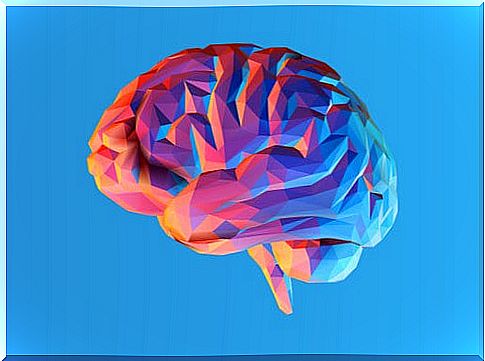The Bilingual Brain

For a long time it was believed that speaking two or more languages impaired cognitive abilities and even conditioned political tendencies and moral values. However, currently we know more in depth the functioning of the bilingual brain and we can affirm that the circumstance supposes more benefits than costs.
Next, the main findings regarding the functioning and characteristics of the brain of people who speak more than one language will be described ; some you may intuit, others will surprise you.
Bilingualism
Individual bilingualism is defined as the ability to use two or more languages (multilingualism) in any situation and with the same communicative efficiency. In turn, this can be differentiated between simultaneous bilingualism and successive bilingualism. The first refers to the acquisition of two languages from birth. The successive one takes place when the person learns a second language after having learned one; for example, taking classes or living in another country.
More than half of the world’s population is considered bilingual. Depending on the area or the country, the percentages of the bilingual population vary. In the case of Europe, the prevalence is 56%, 20% in Canada and up to 99% in Luxembourg.

This large number of bilingual people has led researchers from the field of cognitive psychology to be interested in the underlying processes. Thus, it has been found that monolingual and bilingual people have different development, efficiency and even cognitive performance trajectories.
The basis for which bilingualism interests at the cerebral and functional level is neuroplasticity. That is, the ability of the brain to modify itself based on experience. For this reason, since bilingualism is an experience that is mainly determined by the environment and not by individual preferences, it is so exciting for science.
Cognitive characteristics of the bilingual brain
During childhood language development, there are no significant ill effects due to learning more than one language. However, bilingualism has a number of costs and benefits at the functional level.
Bilinguals consider that among the two languages they dominate, one of them is dominant and the other secondary, even though they learned them simultaneously.
For this reason, using the second language will always involve a greater cognitive effort than when using the dominant one. This effort will be reflected in performance when speaking the non-dominant language. However, there are also differences between monolinguals and bilinguals when it comes to using the dominant language.
Disadvantages for bilinguals
In general, it has been found that the verbal skills of bilinguals in each language are weaker than those of monolinguals. For example, they have a smaller vocabulary, although if the number of words in the two languages were taken into account, this result could vary.
It has also been seen that bilinguals are slower when it comes to naming objects, producing words and they live longer than “having the word on the tip of the tongue”. When it comes to thinking about a word, bilinguals take longer to retrieve it, however this effect is less marked in very common words or sentences, such as “home” or “How are you?”
The main hypothesis used to explain these disadvantages is that when bilinguals want to say, write or hear a word, they cannot prevent it from being activated in the other language. For example, if someone bilingual in Spanish and French wants to thank you, the word merci will inevitably be activated in their mind as well .
Advantage
That same fact that the two terms are activated at the same time requires a great capacity to be able to select one of them and inhibit the one that we do not want to use. Also, taking into account an entire conversation or speech, rather than naming a single word.
The cognitive ability that allows you to do that is executive control. These executive functions (inhibition, set change and working memory) are a set of skills that are in charge of processing information and selecting that which is really relevant and necessary, preventing interference from occurring.
Thus, a medium and large advantage of executive control has been observed in bilingual children and adults compared to monolinguals. This ability is related to academic achievement and better long-term mental health and well-being. In addition, it has even been found that this greater advantage increases the cognitive reserve of bilinguals, delaying the onset of cognitive impairment or Alzheimer’s for up to four years.

Brain characteristics
Regarding executive control, neuroimaging studies have shown that bilinguals present more activation in certain brain areas, such as the caudate nucleus of the left hemisphere, the dorsolateral prefrontal cortex, the cingulate cortex, and the supramarginal gyrus.
In addition, there is evidence that the bilingual brain has a higher number of neurons, possibly due to prolonged exposure to bilingualism. A study carried out by Michelli and his team, found a higher density of gray matter in parietal regions in bilinguals of Italian and English, compared to monolingual Italians.
Allowing for better connectivity between different areas, a greater amount of white matter has also been reported in bilingual adults. This has been seen mainly in the corpus callosum, a structure that allows the connection between the two hemispheres.
Despite the ancient belief that speaking two languages could be negative and with certain non-significant disadvantages, people who speak two languages have greater cognitive and attentional control.
This cognitive advantage also influences other activities beyond linguistics, increasing cognitive reserve, activation and brain anatomy. In short, speaking other languages allows us to communicate with more people, travel without certain limits and improve our brain.









